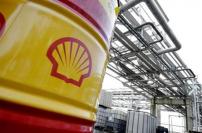 Shell has ongoing problems with its oil reserves, with the oil giant once again having to slash its reserve figures from last year by more than half. This takes about 1.3 billion barrels of oil off its books, equivalent to about a year’s production.
Shell has ongoing problems with its oil reserves, with the oil giant once again having to slash its reserve figures from last year by more than half. This takes about 1.3 billion barrels of oil off its books, equivalent to about a year’s production.
The company is expected to take at least 200 million barrels off the estimates for its Nigeria operations, where rebels have destroyed many of its facilities. Shell’s joint venture with the Nigerian government is also paralysed because of a lack of investment and rising taxes.
Another estimated 1.1 billion barrels will be lost from the $20bn Sakhalin II joint venture after Shell was forced to sell part of its stake last year to Russian gas giant Gazprom. More reserve cuts will come in production-sharing agreements with governments in Asia and elsewhere in Africa.
The reserve replacement ratio is expected to fall to about 80 per cent. This means that for every 100 barrels of oil the company produced last year, it found only 80 new barrels to replace them.
The City has been particularly sensitive about this issue ever since Shell mis-stated its reserve figures in 2004. The company was forced to pay out more than £200m in fines and compensation to settle the scandal. Is there another scandal behind the figures?

Or maybe not…
From AFP: “Supermajor oil producer Royal Dutch Shell PLC said it is replacing reserves faster than depletion, despite the sale of a major asset in Russia.
The company said in an annual report released today that it increased reserves by 1.5 billion barrels of oil equivalent, while it produced 1.2 billion barrels, yielding a replacement ratio of 124 percent.
The increased reserves came about despite the sale of a major asset in Russia at a cost of about $20 billion.
The extra reserves came from projects in Australia, Norway, Qatar and the United States, the company said. If oil sand production were included in the statistic, the replacement ratio would rise from 124 percent to 127 percent.
“This is an unprecedented phase of activity for Shell in a new energy landscape,” said CEO Jeroen van der Veer (Agence France-Presse, March 17).